My One Stop Childhood Fever Guide!
Childhood fevers can put parents into panic mode!! Childhood fever and febrile seizure are one topic that has a lot of misinformation, and thanks to media advertising there is an unnecessary fear of fever. Parents can breathe a sigh of relief when they understand the benefits of fever and can allow the immune system to do its job.
Kids spike fevers. But “How high is too high? And, what are the risks of febrile seizure?”
These are the biggest concerns, and rightly so. Witnessing your child in a seizure is incredibly frightening. And reaching into the higher temperatures can be worrisome if you not prepared.
So first let me say… fever is a normal healthy part of a child’s immune response AND for the most part you can manage their fever (and your fear!) at home successfully without medication.
I have gathered all of the most common Q & A here with what the recent science says and what to watch for should you need additional support from conventional medical providers. Also, included in today’s post is the single, must-have homeopathic remedy you can consider using instead of over-the-counter fever suppressants.
PLUS! Below is my handy one-page fever tip sheet to put on your fridge as a quick reference.
Note: I use published research where possible but recommend that you trust your instincts and get help from your family physician or emergency clinics if you are really concerned. For the most part, you can manage your child’s fever, at home, without over-the-counter fever reducing medications that carry their own risks.
Q: What is the rule of thumb? When is it time to “freak out” and when is it OK to remain calm?
A: The calm part first. And it is always good to be ‘calm’. 🙂 Then maybe the “freak out” will be minimized once you know what you know about fevers.
First let’s establish: What is normal? And hopefully the answer will give you some reassurance and help you remain calm. Please note – the chart is a ‘range’ which will give you a clue about ‘normal’.
Method Normal temperature range
Rectum 36.6°C to 38°C (97.9°F to 100.4°F)
Mouth 35.5°C to 37.5°C (95.9°F to 99.5°F)
Armpit 36.5°C to 37.5°C (97.8°F to 99.5°F)
Ear 35.8°C to 38°C (96.4°F to 100.4°F)
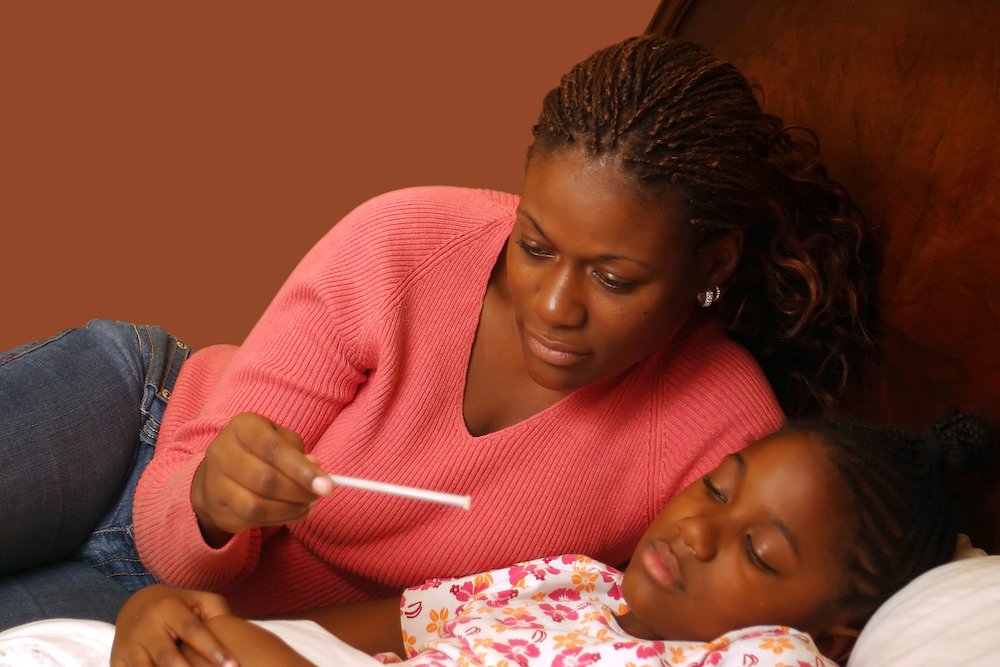
When is ‘normal’ not YOUR child’s ‘normal’?
Dr. Robert Mendelsohn, who wrote the book How to Raise a Healthy Child in Spite of Your Doctor, has an excellent chapter just on fever. I would highly recommend you buy his book. Here is his answer to ‘what is normal’ or more accurately, when is normal, ‘not normal’?
“A temperature of 98.6 degrees Fahrenheit is not the “normal” temperature for everyone.
That’s what most of us have been told all of our lives, but it simply isn’t true. The 98.6 degree standard for body temperature is merely a statistical average, and “normal” for most people is either higher or lower than that. This is particularly true of children. Their “normal” temperatures, measured in carefully controlled studies, ranged from a low of 96.6 degrees to a high of 99.4. very few of these healthy children registered temperatures of precisely 98.6 degrees.
Your child’s temperature may also fluctuate significantly throughout the day. You can expect his temperature to be about a degree higher in the late afternoon than it is in the early morning. Thus, an elevated reading taken at dinnertime may be a perfectly normal reading that occurs at that hour almost every day.”
What is your normal or your child’s normal?
Knowing your own child’s thermal regulation will go a long way in ‘keeping calm and carrying on’ if you suspect your child is getting sick. Here are a couple of studies to check out.
Fever STUDY:
“Human body temperature is a highly variable vital sign and known to be influenced by several variables, most prominently the person’s age and the site of measurement. Our systematic review is the largest of its kind and provides clinicians with evidence-based normal temperature ranges to guide their evaluation of patients with possible fever or hypothermia.” <Source>
Another Fever STUDY:
“Background:
Variation in baseline ear temperature, taken in the unadjusted mode, has yet to be established in different age groups. Because normal body temperatures show large variations, the same may be expected for increased temperatures in fever. The aims were to study variations in normothermic body temperatures measured with an ear thermometer and to determine differences between actual and perceived body temperature during a febrile episode (referred to as difftemp) in apparently healthy children and adults.
Conclusions from the study published in Science Direct where 2,006 individuals from age 2 to 89 years were measured:
“Ear body temperature is lower than traditionally reported and differs with age and sex. An individual difftemp of 1.0-1.5°C along with malaise might indicate fever.” <Source>
Q: Is there a magic number? Does it mean a devastating illness is coming? I thought if could stop the fever=stop the illness or its severity. How long before you know it has been too long to run a high fever?
Hopefully after reading this article you will be able to skip the “freaking out” part but also, know when you need to get medical support.
A: From Dr. Mendelsohn:
“Knowing the precise level of your child’s fever will tell you nothing about how sick he/she is if the fever is produced by a viral or bacterial infection.
There is nothing to be gained by measuring its climb and doing so will probably magnify your fears and upset the child.
Some common, nonthreatening diseases such as Roseola (one-day measles) produce extremely high temperatures in some children, while other more serious diseases may not produce any temperature elevation at all. Unless your child’s fever is accompanied by additional symptoms, such as vomiting or respiratory difficulties, it need not be a cause for concern, even if it reaches 105.”
From the Mayo Clinic Sample of recommendations for infants and toddlers. The website has recommendations for toddlers, children, teens and adults too.
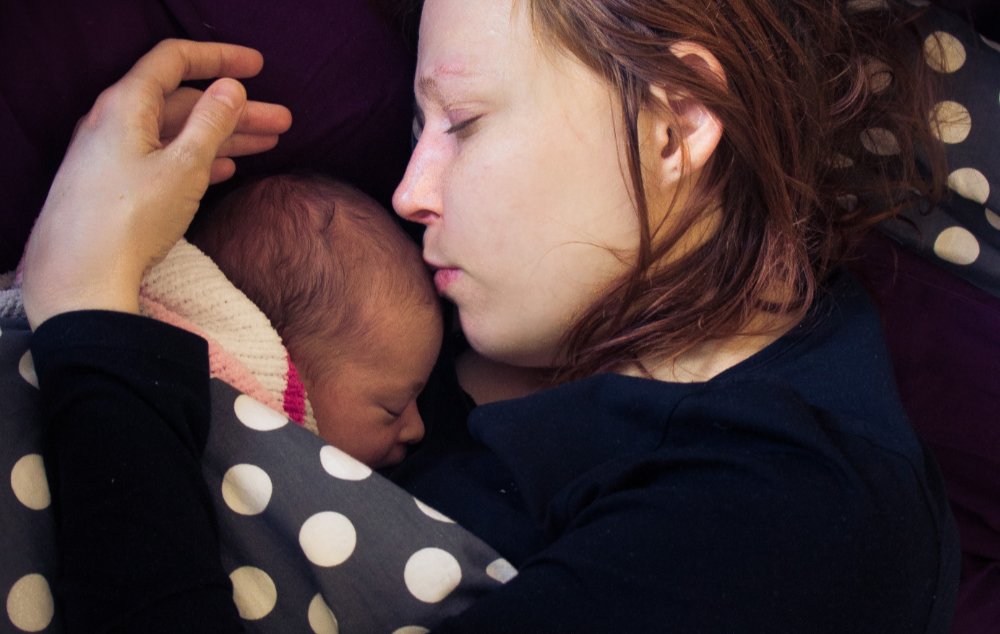
Fevers in Infants and Toddlers
Age: 0-3 months
Temperature: 100.4 F (38 C) or higher taken rectally.
What to do: Call the doctor, even if your child doesn’t have any other signs or symptoms.
Age: 3-6 months
Temperature: Up to 102 F (38.9 C) taken rectally
What to do: Encourage your child to rest and drink plenty of fluids. Medication isn’t needed. Call the doctor if your child seems unusually irritable, lethargic or uncomfortable.
Age: 3-6 months
Temperature: Above 102 F (38.9 C) taken rectally
What to do: Call the doctor; he or she may recommend that you bring your child in for an exam.
Age: 6-24 months
Temperature: Above 102 F (38.9 C) taken rectally
What to do: Give your child acetaminophen (Tylenol, others). If your child is age 6 months or older, ibuprofen (Advil, Motrin, others) is OK, too. Read the label carefully for proper dosage. Don’t give aspirin to an infant or toddler. Call the doctor if the fever doesn’t respond to the medication or lasts longer than one day.
Which now begs the question asked by many parents:
Q: Should the fever be treated with fever medications (anti-pyretics)? Will medications prevent febrile seizure?
Conventional treatment with acetaminophen, Ibuprofen (Tylenol, Panadol, Paracetamol, Advil)
- Often recommended by doctors and pediatricians – treat the fever
- There was a practice of giving fever meds before and after vaccination – created many problems.
- And at one time alternating Tylenol and Ibuprofen was a recommendation for ‘treating’ fever
- Research is now coming forward that supports allowing fever.
Fever is Beneficial – Some conclusions from World Journal of Clinical Pediatrics :
“A moderate fever (less than 40 °C) is beneficial. Febrile seizures are usually benign and does not cause brain damage. Its prevention is difficult and may not be achievable. Antipyretics cannot prevent Febrile Seizure. Evidence-based educational interventions are the best way to treat and prevent fever phobia and reduce unnecessary use of health services. This information is best delivered during routine health checks, as parents’ anxiety may interfere with their understanding of facts presented when their child is sick. Parents should be taught how simply to assess the child’s wellbeing (e.g., skin colour, activity levels, respiratory rate, and hydration).
When we focus upon “treating” the fever, we are giving the impression to parents and health professionals that fever is harmful and that antipyresis is beneficial. Scientific evidence does not support this practice. To continue the current practice of liberal use of antipyretics may mean that we are ignoring important messages from research.”
Q: What happens…or does not happen when you use fever suppressants?
You want your child to have an appropriate immune system response which leaves them better for having had an experience of an illness. You want them to have the antibodies needed to ‘remember’ the illness and prevent another possible infection. So if you give a fever suppressant, which is one of the first responders to an illness, what happens? Are you supporting life-long immunity? Or suppressing immunity? Or are you creating a situation where the illness is prolonged? Yes. Your kids are playing and ‘happy’ if you watch the television ads but are you extending the illness and potentially keeping the shedding of the virus alive, longer?
Here is what some science is showing:
“Use of aspirin and acetaminophen was associated with suppression of serum neutralizing antibody response (P less than .05 vs. placebo) and increased nasal symptoms and signs (P less than .05 vs. placebo).
A concomitant rise in circulating monocytes suggested that the suppression of antibody response may be mediated through drug effects on monocytes and/or mononuclear phagocytes. There were no significant differences in viral shedding among the four groups, but a trend toward longer duration of virus shedding was observed in the aspirin and acetaminophen groups.” <Source>
Ibuprofen and other widely used non-steroidal anti-inflammatory drugs inhibit antibody production in human cells. <Source>
“The implications of this research are that the use of widely available NSAIDs (non-steroidal anti-inflammatory drugs – think aspirin, ibuprofen) after infection or vaccination may lower host defense. This may be especially true for the elderly who respond poorly to vaccines and heavily use NSAIDs.”
What Does the Science Mean?
“Since they were able to observe antibody suppression with anti-pyretics even in a test tube, then the mechanism of such suppression should be similar for both vaccine antibody response and natural antibody response. The bottom line is, fever suppression is bad for everyone, regardless of where people are with respect to their vaccine ideology.” Dr. Tetyana Obukhanych, Immunologist and author of Vaccine Illusion
Parents Ask About Febrile Seizures and Homeopathy…

Q: “We use drugs to help regulate temperature more than anything, to prevent spikes, alongside homeopathy. Is it OK to use both homeopathy and over-the-counter or prescription drugs?
From the conclusions of the research papers below, it would seem that at the time of a febrile seizure, the acetaminophen can help prevent a prolonged seizure during the same episode… but not prevent future seizures. It would also seem, that with seizures (brain involvement) you would want to access emergency care and in between, constitutional homeopathic treatment as well as knowing the signs/symptoms of your child and find an acute remedy as well…or contact your homeopath. Both together would be good. Sometimes, that is the best of both worlds.
RESEARCH
Paper 1
Do antipyretics prevent the recurrence of febrile seizures in children? A systematic review of randomized controlled trials and meta-analysis
OBJECTIVES: To determine the effectiveness of antipyretics use in prevention of subsequent febrile seizures in children.
RESULTS: Initial search identified 479 citations, five articles underwent further rigorous evaluation by two reviewers and three papers met the inclusion criteria. In these three studies, 540 children were included, of whom 348 received antipyretics (acetaminophen (15 mg/kg), ibuprofen (5–10 mg/kg) or diclofenac (1.5 mg/kg)) and 192 received placebo for prevention of subsequent febrile seizures during a 1–2 year follow-up period. Seventy-nine patients (22.7%) in the antipyretics group and forty-seven patients (24.4%) in the placebo group had febrile seizure recurrence during follow up. No statistically significant difference was found between the antipyretics and the placebo groups in the recurrence rate of febrile seizures (OR 0.9, 95% CI: 0.57–1.43).
CONCLUSIONS: Antipyretics were ineffective in reducing the recurrence of febrile seizure <Source>
Paper 2
Acetaminophen and Febrile Seizure Recurrences During the Same Fever Episode
OBJECTIVES: To confirm the safety of using acetaminophen for febrile seizures (FSs) and to assess its efficacy in preventing FS recurrence during the same fever episode.
RESULTS: We evaluated 423 patients; of these, 219 were in the rectal acetaminophen group, and 204 were in the no antipyretics group. In the univariate analysis, the FS recurrence rate was significantly lower in the rectal acetaminophen group (9.1%) than in the no antipyretics group (23.5%; P < .001). Among the variables in the final multiple logistic regression analysis, rectal acetaminophen use was the largest contributor to the prevention of FS recurrence during the same fever episode (odds ratio: 5.6; 95% confidence interval: 2.3–13.3).
CONCLUSIONS: Acetaminophen is a safe antipyretic against FSs and has the potential to prevent FS recurrence during the same fever episode. <Source>
Q: Do high fevers not cause irreversible damage to the brain because they lead to febrile seizure? Are we hurting a child by letting the fever rise and letting all unfold?
From the National Institute of Neurological Disorders and Stroke website:
“The vast majority of febrile seizures are short and do not cause any long-term damage. During a febrile seizure, there is a small chance that the child may be injured by falling or may choke on food or saliva in the mouth. Using proper first aid for seizures can help avoid these hazards.
There is no evidence that short febrile seizures cause brain damage. Large studies have found that even children with prolonged febrile seizures have normal school achievement and perform as well on intellectual tests as their siblings who do not have seizures. Even when the seizures last a long time, most children recover completely.”
For up to date research, you can go to this link for more information.
When to Seek Help: How to Know When a Fever Is Dangerous
You should seek medical attention for yourself or a child under the following fever scenarios:
- If your child is 3 months old or younger and has a rectal temperature of 100.4 degrees F or higher
- If your child is 3 to 12 months old and has an oral temperature of 102.2 degrees F
- If your child is 2 years old or younger and has a fever that lasts longer than 24 to 48 hours
- Adults with a fever higher than 105 degrees F or a fever over 103 degrees F that rises or lasts longer than 48 hours
In addition, you should seek medical care if you have a fever accompanied by rash and bruising, difficulty breathing, and/or pain while urinating. Also consult a doctor if you have recently been vaccinated, visited another country, or have a serious pre-existing illness. Seek out a pediatrician if your child seems confused, has a stiff neck, and/or won’t stop crying <Source>
Homeopathic Remedy for Fever with a Parent’s Experience of her Child’s Fever
If you have got this far you are really interested in fevers!
I have put together a two handy fever print outs that you can stick to the fridge for those middle of the night emergencies. The Must-Have Remedy & How High is Too High


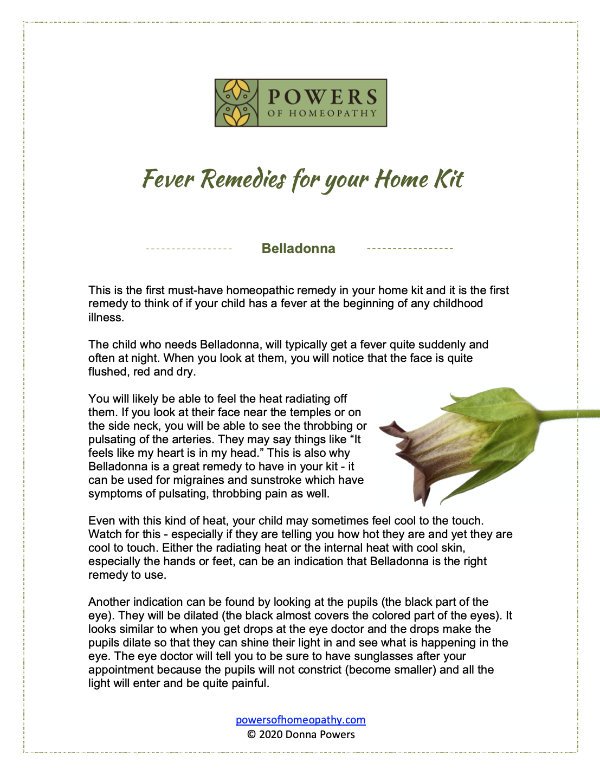
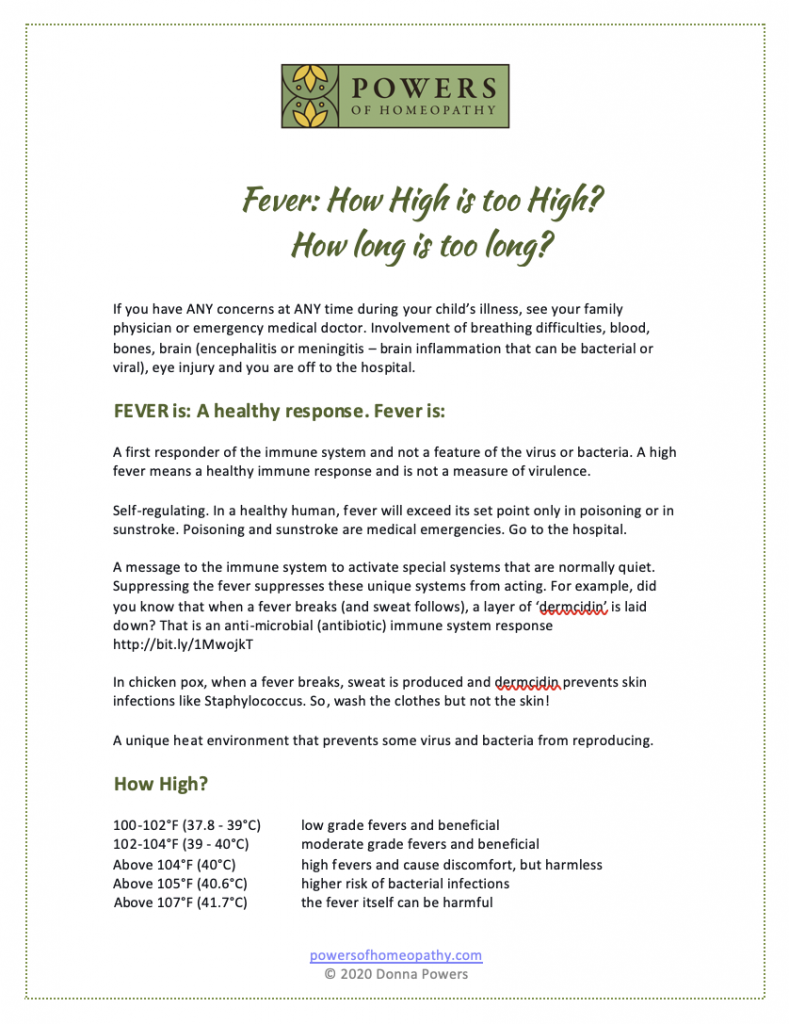

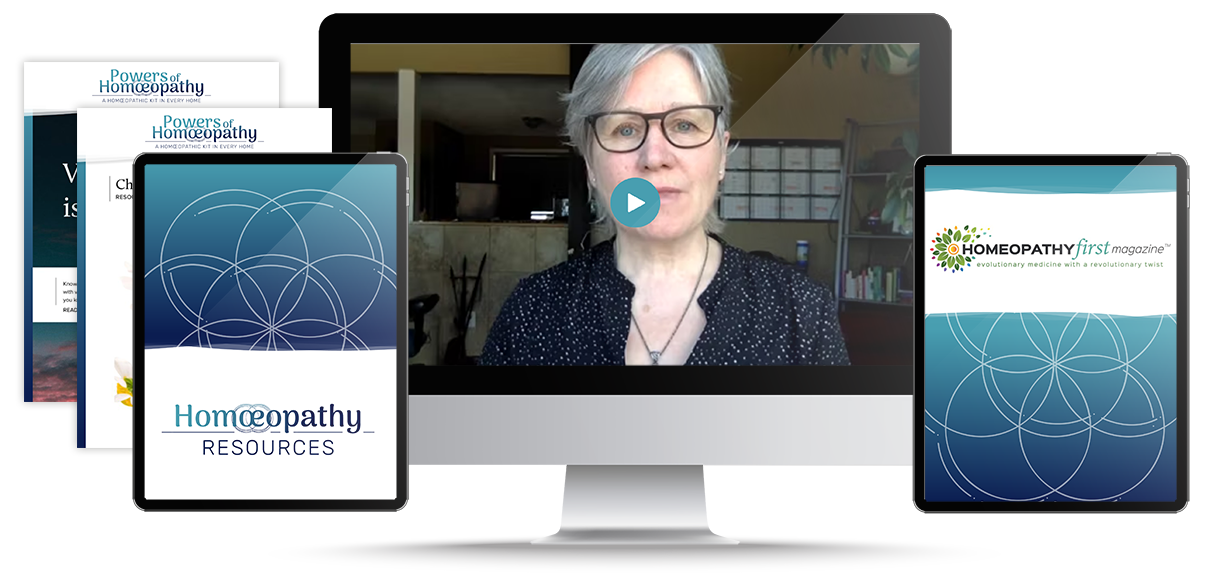

This was excellent information! How do I get the printout of the information for my fridge? Thank you.
hi Jo-Ann,
I will send you the handouts via email. I will double check and see if I can find out why that link was not in the blog! Thank you for letting me know!
Best!
Donna